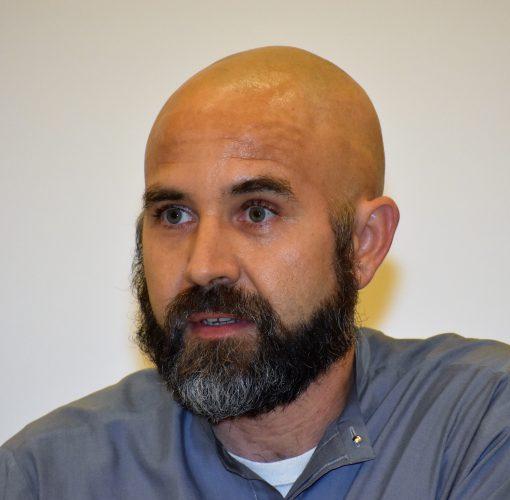Impact Story: Building Adaptive Capacity in U.S. Veterans
November 9, 2017

The Rev. Dr. Chris Antal has many years of experience working with veterans. A veteran himself, he served as a U.S. Army chaplain in Afghanistan and now serves as a staff chaplain for the U.S. Department of Veterans Affairs as well as a Unitarian Universalist minister.
His Doctor of Ministry project focused on something near and dear to him. It was called Patient to Prophet: Building Adaptive Capacity in U.S. Veterans.
The project looked at how the Veterans Health Administration treats those with post-traumatic stress disorder (PTSD) and moral injury (MI) as "patients." The Rev. Dr. Antal worked to reframe that approach by creating a focused moral injury group for combat veterans that provided a "shared spiritual and moral community."
This group of six veterans met over three months in fall 2016. After the tenth meeting, the group hosted a "community healing ceremony" that included hospital staff, relatives, veterans and clergy, on the assumption that "morality arises in relationships, so the suffering that moral injury points to needs to be addressed in a group process."
The ceremony included civilians because "moral injury is, in part, a consequence of both what the U.S. public has done and failed to do."
The Rev. Dr. Antal explains in the abstract of his project that this approach allows veterans to address "moral and/or spiritual injuries as well as religious and ethical questions or conflicts that do not fit within mental health diagnostic categories and are not addressed adequately by most groups or treatment models."
The abstract concludes: "The group empowers veterans to reframe their self-understanding - from self as patient, or 'sick person,' to self as prophet."
Join our mailing list
Keep up with all the latest happenings at Hartford International.

